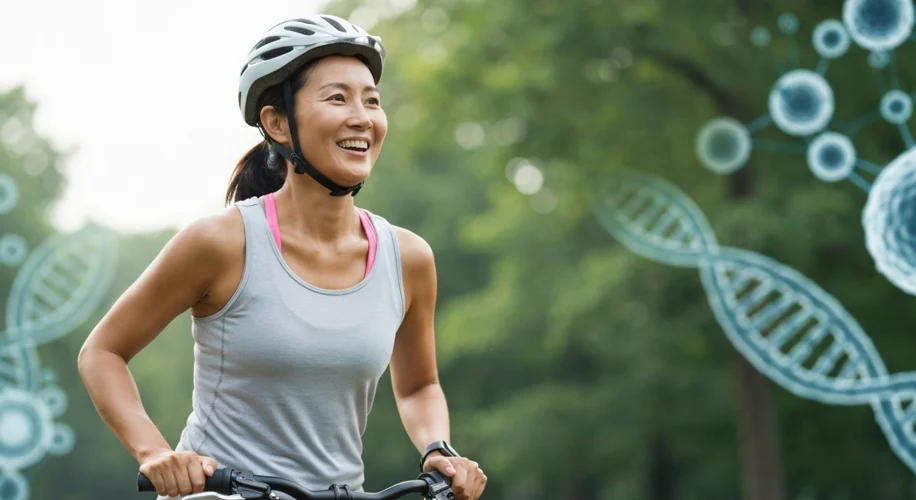Did you know that moving your body could actually be making you younger, not just keeping you healthy? It sounds like something out of science fiction, but recent research is pointing towards exercise as a powerful tool to slow down the aging process, right down to our DNA.
It’s pretty amazing to think about. We often associate aging with inevitable decline, but science is revealing that our lifestyle choices, particularly exercise, have a profound impact on how our bodies age.
The Molecular Benefits of Getting Moving
Scientists are digging into the molecular level to understand just how exercise impacts aging. They’ve found that regular physical activity can influence our telomeres. These are the protective caps at the ends of our chromosomes, kind of like the plastic tips on shoelaces that stop them from fraying. With each cell division, telomeres naturally get shorter. Shorter telomeres are linked to cellular aging and an increased risk of age-related diseases.
What’s exciting is that studies, including those highlighted by SciTechDaily, suggest that exercise can help maintain the length of these telomeres, or at least slow down their shortening. This means that by staying active, you might be effectively slowing down the aging process at a cellular level. It’s like hitting the pause button on some of the wear and tear our cells experience over time.
Beyond the DNA: Other Longevity Habits
While exercise is a major player, other habits also contribute to a longer, healthier life.
- Healthy Diet: Eating a balanced diet rich in fruits, vegetables, and whole grains provides the nutrients your body needs to repair itself and function optimally. Think of it as giving your cells the best building blocks possible.
- Adequate Sleep: Getting enough quality sleep is crucial for cellular repair, hormone regulation, and cognitive function. It’s when your body does its most important maintenance work.
- Stress Management: Chronic stress can accelerate the aging process. Finding healthy ways to manage stress, like mindfulness or spending time in nature, can have a significant positive impact.
What Doesn’t Help (and Might Hurt)
On the flip side, some popular trends or ideas don’t hold up when it comes to genuine longevity.
- Quick Fixes: Be wary of products or programs promising instant or miraculous anti-aging results. True health and longevity are built over time through consistent, healthy habits.
- Excessive Sedentary Behavior: While we all need rest, prolonged sitting and a lack of movement can counteract the benefits of any exercise you might do. It’s about finding a balance and integrating movement throughout your day.
Why This Matters
Understanding the science behind aging and how our actions influence it empowers us to make better choices. Exercise isn’t just about building muscle or losing weight; it’s a fundamental way we can influence our biological age and enhance our overall well-being for years to come.
So, next time you lace up your sneakers or head to the gym, remember you’re not just working out – you might be working backwards on the clock!

